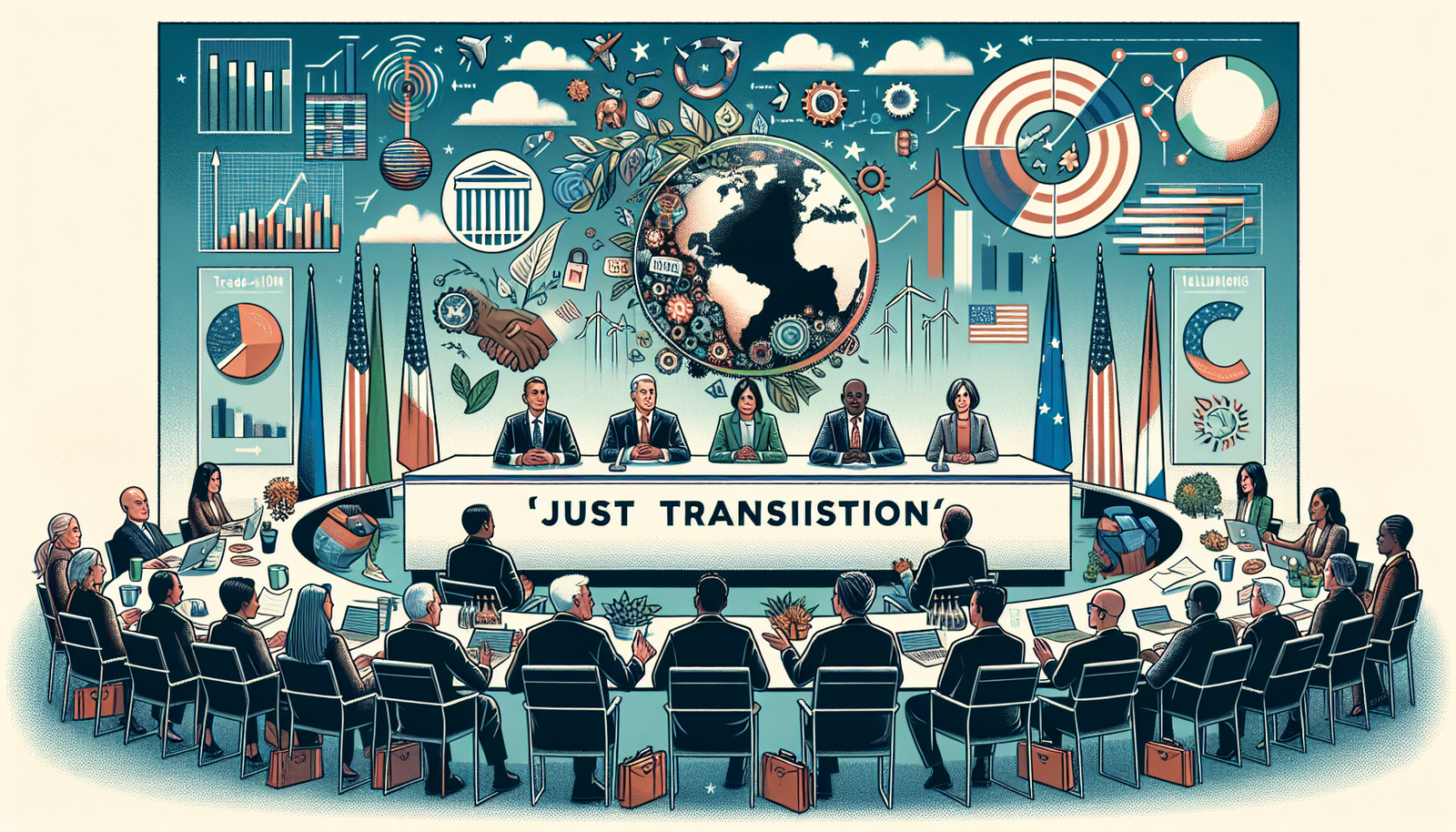
Republicans Present Their Own Interpretation of the ‘Just Transition’ — Focused on Trade
As the landscape of American politics evolves, the concept of a ‘just transition’ has become a focal point in discussions surrounding economic policy. Traditionally, this term has been associated with Democratic initiatives aimed at transitioning from fossil fuels to renewable energy through government intervention. However, as highlighted in a recent article from the National Review, Republicans are now proposing their own version of a just transition that centers on trade policy rather than energy.
The Concept of ‘Just Transition’
The Democratic interpretation of a just transition involves a comprehensive government-directed shift that seeks to address the economic and social upheavals resulting from a move away from fossil fuels. This framework has been widely discussed in political circles, emphasizing the need for support for workers and communities affected by this significant economic shift.
The Republican Approach
Contrary to the Democratic focus, Republicans are carving out a distinct narrative centered on trade. This new approach aims to mitigate the adverse effects that trade agreements and globalization have had on various sectors of the economy, particularly manufacturing and other labor-intensive industries. By pivoting to trade policy, Republicans intend to create a framework that not only recognizes the challenges posed by trade but also offers actionable solutions to aid those impacted.
Trade Policy and Economic Transition
The Republican model for a just transition encompasses several key policy initiatives designed to support workers and industries adversely affected by global trade dynamics. These initiatives may include:
- Retraining Programs: Investment in vocational and skills training to help workers transition to new roles in emerging industries.
- Community Support: Financial assistance and resources for communities experiencing economic downturns due to trade adjustments.
- Trade Policy Adjustments: Reevaluation of existing trade agreements to better protect domestic industries and workers from international competition.
Critique of Democratic Policies
The Republican stance contrasts sharply with the Democratic focus on broad, sweeping governmental solutions primarily targeting the energy sector. While Democrats advocate for comprehensive plans that encompass environmental sustainability, Republicans argue for a more tailored, market-driven approach that addresses economic transitions directly related to trade.
Economic and Political Implications
The ramifications of these divergent approaches could have significant implications for both the economy and the political landscape. The Republican version of a just transition might resonate more with voters who are wary of globalization’s effects but are also skeptical of extensive government intervention. This creates an opportunity for Republicans to gain traction among constituents concerned about job displacement and local economic challenges.
Policy Proposals
To operationalize their vision of a just transition for trade, Republicans are considering several policy proposals that aim to bolster domestic manufacturing and support workers. Potential initiatives may include:
- Changes to Trade Agreements: Revisions of current agreements to prioritize American jobs and products.
- Support for Domestic Manufacturing: Incentives for companies to keep production within the U.S. and create jobs locally.
- Adaptation Programs: Establishment of programs aimed at assisting workers facing job displacement due to trade fluctuations.
Overall, the evolution of Republican policies surrounding the notion of a just transition illustrates a significant shift towards addressing economic changes driven by trade dynamics. By focusing on market-oriented solutions and supporting workers impacted by globalization, Republicans aim to provide a viable alternative to the Democratic agenda, appealing to a broad range of voters.
